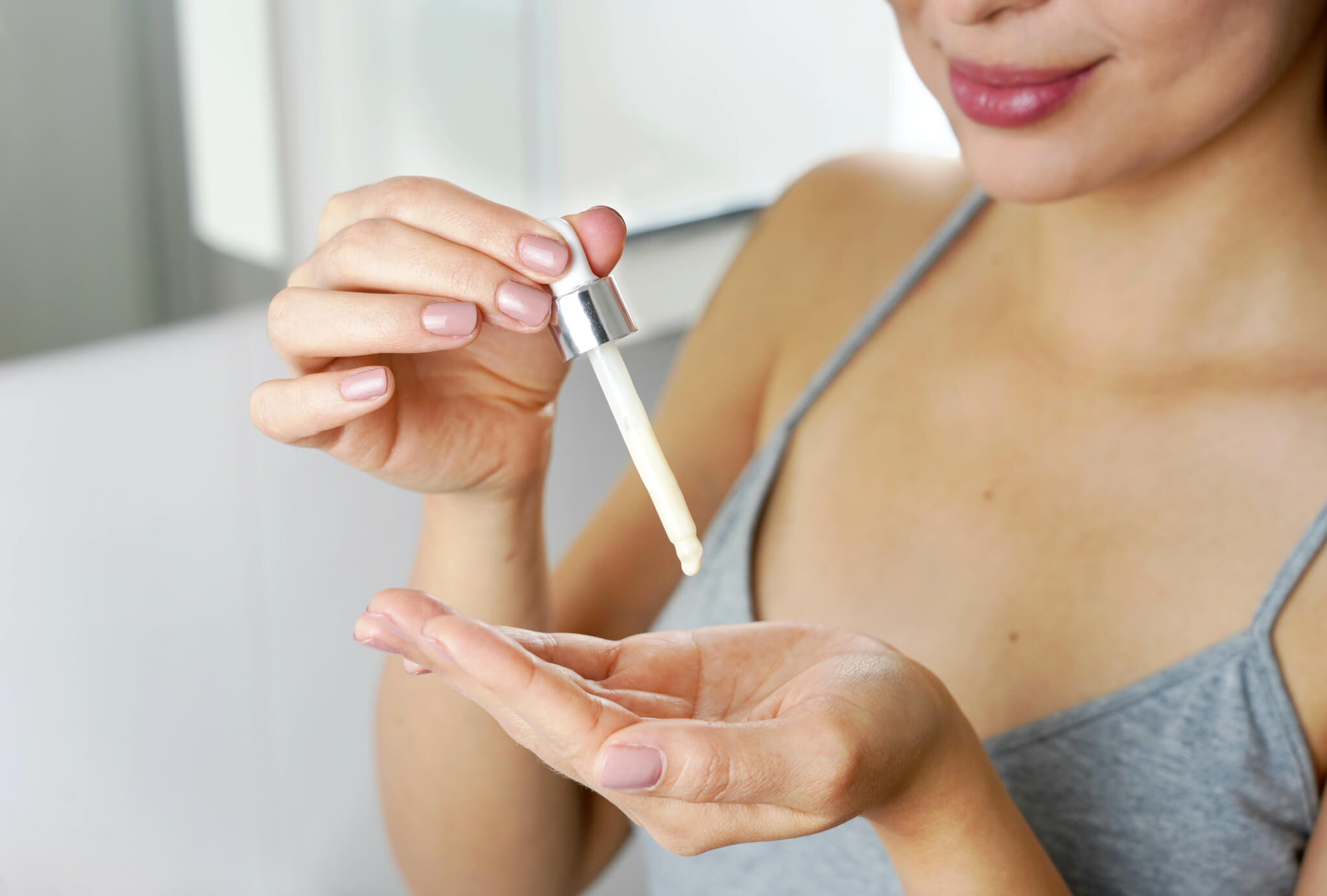Retinol is one of the most beneficial skincare ingredients available. Naturally derived from vitamin A, this skincare powerhouse offers acne-fighting, anti-aging, complexion-brightening results that are incomparable to other ingredients. All of this comes with one big caveat – you have to use it correctly. While retinol transforms skin’s health and appearance, it may also lead to irritation, inflammation, skin redness, and a range of other side effects when used improperly or in combination with the wrong skincare ingredients. According to Dr. Jacqueline Watchmaker of U.S. Dermatology Partners Center of Aesthetic and Laser Medicine Scottsdale and Southwest Skin Specialists Phoenix Biltmore and Scottsdale, “Often patients think that if there is no irritation, dryness or flaking associated with retinol or tretinoin use that it is not working. But this is not true. The goal is to be able to use a retinol or tretinoin nightly with little to no irritation.” In this blog, we’ll walk through what products to use with retinols, what products to avoid with retinols, and provide tips for incorporating retinol into your skincare routine.
Understanding Retinol and Its Benefits
Before you move forward with a retinol skincare routine, it’s important to understand exactly what retinol is and how it helps your skin. Retinol is an ingredient derived from vitamin A that is utilized as part of skincare routines as a chemical exfoliant. When most people hear exfoliant, they’re still thinking about the harsh, abrasive sugar scrubs and similar physical exfoliant products. Chemical exfoliants offer a less abrasive alternative to physical exfoliant products, but there is still a risk of irritation if used incorrectly. For this reason, it’s important to choose the right retinol and use it correctly. When used appropriately, retinols dissolve dead and damaged skin cells on the outer layers, revealing the healthy new skin below. This chemical exfoliation process also stimulates the production of collagen and elastin proteins, which give skin a smooth, youthful appearance.
Technically, there are two types of “retinols”: over-the-counter retinol and prescription-strength retinoid. The over-the-counter products that contain these ingredients are traditional retinols. They may contain retinol esters that are typically easier on skin or retinaldehydes that are stronger. Both types of retinol are still formulated to reduce potential irritation. Some products do contain pure retinols. These are much more likely to cause irritation, and they may not be recommended for those with sensitive skin. There is also a prescription-strength version of this ingredient that is referred to as a retinoid. While these terms can be used interchangeably, they are technically different. Retinoids are much more potent, so they require dermatologist prescription to ensure they are used safely.
You may be wondering, if retinol can damage skin, why even use it? The answer is simple. The benefits of using retinol correctly far outweigh the potential drawbacks when this ingredient is misused. Common benefits of retinol use include:
- Clearing and shrinking pores.
- Fighting acne and helping to clear up blemishes.
- Reversing the signs of aging, including fine lines, wrinkles, and dark spots.
- Achieve thicker, stronger skin. Dr. Watchmaker says, “There’s a common misconception that using a retinol or tretinoin thins this skin, but it’s actually the opposite, but it’s actually the opposite. Increased cell turnover and collagen and elastin production lead to thicker, healthier skin.”
- Addressing photodamage from sun exposure, including uneven skin tone, wrinkles, and skin laxity.
- Delivering a more even skin tone and texture.
Best Ingredients to Pair with Retinol
As you’re building retinol into your skincare routine, you can pair it with products that have the following ingredients:
- Hyaluronic acid and other moisturizers – hyaluronic acid, peptides, ceramides, and other moisturizing and skin hydrating ingredients pair well with retinol and help to minimize adverse effects like skin drying. In fact, combining retinol with a hyaluronic acid serum prior to application is often recommended to prevent skin irritation.
- Niacinamide – derived from vitamin B, niacinamides improve skin’s natural barrier functions and address signs of aging like skin laxity. Their barrier-boosting benefit makes them ideal to utilize with retinol. As dead skin cells are removed, niacinamide goes to work ensuring the healthy, new skin cells in outer layers provide adequate defense against environmental aggressors.
- Growth factors – these ingredients are popping up more and more often in skincare products, and they are excellent to use in combination with retinol. They stimulate healing as well as collagen and elastin production, boosting the anti-aging and skin brightening and smoothing benefits.
- Plant stem cells – products with ingredients or names that include “phyto” and those directly marketed as containing plant stem cells are excellent for use with retinols. Plant stem cells offer anti-inflammatory support to reduce side effects of retinol use.
- Resveratrol – this antioxidant agent fights the increased risk for sun damage that comes along with retinol use. In the evening, resveratrol should be applied before retinol. In addition to antioxidant benefits, resveratrol also promotes cell turnover and encourages collagen and elastin production, so for those with very sensitive skin who aren’t able to acclimate to retinol use, resveratrol can even be a substitute.
Ingredients to Avoid When Using Retinol
In addition to finding the right products to use with retinol, it’s also important to skip ingredients that worsen retinol side effects or prevent retinols from working effectively, including:
- Alpha and beta hydroxy acids – these ingredients are chemical exfoliants. Pairing retinol with strong alpha and beta hydroxy acids can lead to over-exfoliation and irritation, especially when you first start using retinol.
- Vitamin C – the role of vitamin C in skin care is to protect against damage from the sun and environmental aggressors. Retinol is used to dissolve away dead skin cells to reveal healthy, new skin. Typically it is recommended to use Vitamin C in the morning and retinol at night (not at the same time).
- Benzoyl peroxide – while benzoyl peroxide and retinol are both key acne-fighting skincare ingredients, they shouldn’t be mixed. Retinol is an antioxidant. It fights against and heals oxidative effects on skin like sun damage and collagen loss. Benzoyl peroxide is a deep-cleaning agent that uses oxygen to penetrate into pores. Both can be included in your skincare routine for acne, but benzoyl peroxide should be applied in the morning while retinol is used as part of your nighttime regimen.
Tips for Starting a Retinol Program
As you begin incorporating retinol into your daily skincare routine, keep the following retinol use “dos” in mind:
- Do test retinol first. Apply retinol to a small area for a few days to a week and monitor any skin health concerns that arise. If you don’t notice any adverse effects, you can begin applying to your full face.
- Do apply retinol at night. Sun sensitivity is a common side effect of retinol usage, so it’s recommended that retinol be used during the evening skincare routine.
- Do introduce retinol gradually. You don’t need to apply products with a high dose of retinol right away. Instead, look for options that have lower levels of retinol and build up to higher doses.
- Do use recommended application techniques. Apply a small amount of retinol after cleansing and applying toner. Then, follow the retinol with moisturizer. You can also combine a retinol serum with a hyaluronic acid serum before applying to capitalize on the benefits of retinol while keeping skin hydrated the irritation.
- Do talk to a professional to receive personalized recommendations. A dermatologist can help you understand your unique skin health needs and partner with you to find the best retinol treatment.
Common Mistakes to Avoid
Many people experience adverse effects when using retinol, like skin sensitivity. When used properly as directed above, just about anyone can incorporate retinol into their skincare routine successfully. In addition to the retinol usage “dos” above, there are also some retinol usage “don’ts” you should keep in mind, including:
- Don’t use a retinol product that’s too strong. Start at very low retinol concentrations if you’ve never used this ingredient before. This is especially important for those who have sensitive skin. Before incorporating a retinol product into your daily routine, apply a very small amount to one area of skin. Continue application for a few days and monitor any reactions. If you don’t see any adverse effects within in a week of treating a test area, you can move forward with applying retinol to the whole face.
- Don’t apply too much retinol. Even lower dose retinols can be irritating if too much is applied. Use only the recommended amount of product. A little bit truly does go a long way with retinol.
- Don’t use retinol too frequently. Retinols should only be applied once daily at a maximum. Some people even reduce application to every other day or just twice a week. Whatever routine you develop, consistent usage will deliver results.
- Don’t combine retinol with incompatible ingredients. We’ve already addressed this above, but it bears repeating. Don’t combine retinol with alpha or beta hydroxy acids, benzoyl peroxide, vitamin C, and other retinols or retinoids.
- Don’t skip sunscreen Retinols are usually used as part of nighttime skincare routines, but even when they’re applied at night, they can lead to lingering sun sensitivity. Make sure you apply sunscreen daily to any areas treated with retinols and reapply as needed throughout the day.
When to Seek Dermatologist Advice
In most cases, you can incorporate retinol into your skincare routine on your own. You’ll just need to start with lower dose formulas and work your way up. However, some people have more serious adverse responses to retinol use. This can include peeling, burning, redness, heat, and extreme skin sensitivity. If you notice any of these warning signs, discontinue retinol use immediately and contact your dermatologist. This doesn’t necessarily mean you can never use retinols. It simply means you’ll need professional guidance to find the right retinol for your unique needs.
Proper Retinol Usage Ensures Beautiful Results
When used properly as part of a balanced skincare routine, retinol offers numerous short and long-term benefits for just about every skincare routine. According to Dr. Watchmaker, “You can incorporate retinol into your routine using a lower strength retinol or tretinoin consistently. This provides better results than using a stronger formulation inconsistently.” Still not sure what retinol to use for your unique skincare needs? Consider discussing your options with a dermatologist who can work with you to develop a skincare plan that meets your needs, addresses any specific concerns, and keeps you looking and feeling your best.
Keep Exploring Our Skincare Products & Recommendations
We know layering and mixing and adding and changing skincare products can feel overwhelming. There are almost too many options. You can rest-assured the products featured on DermSkincare have been specifically vetted by dermatologists to ensure they have high-quality ingredients that deliver on their promises. We hope you’ll take some time to explore what we have to offer on the DermSkincare site. You can also come back regularly to read our blogs for more skincare tips and tricks from knowledgeable dermatologists.
Find a location near me
or


